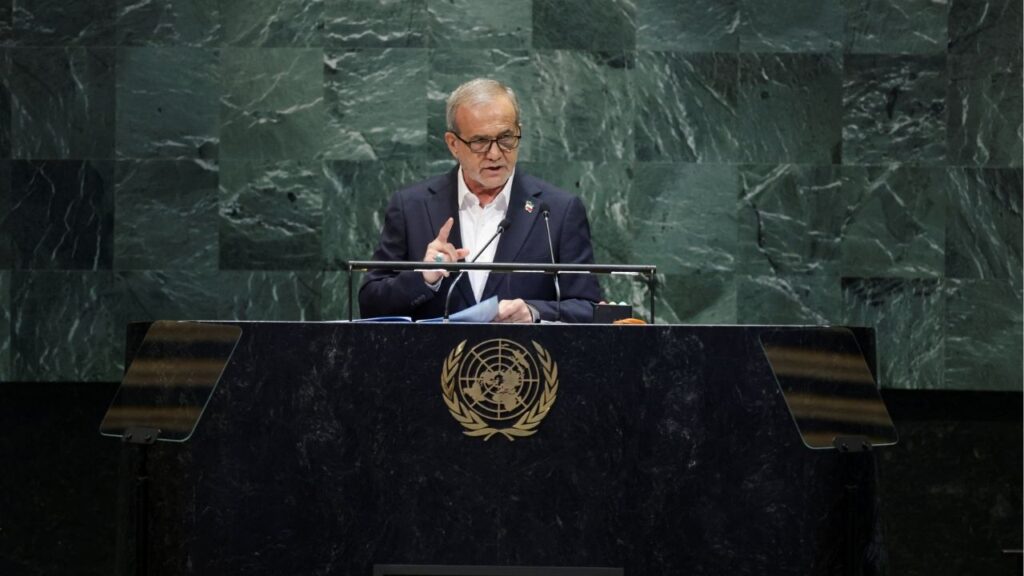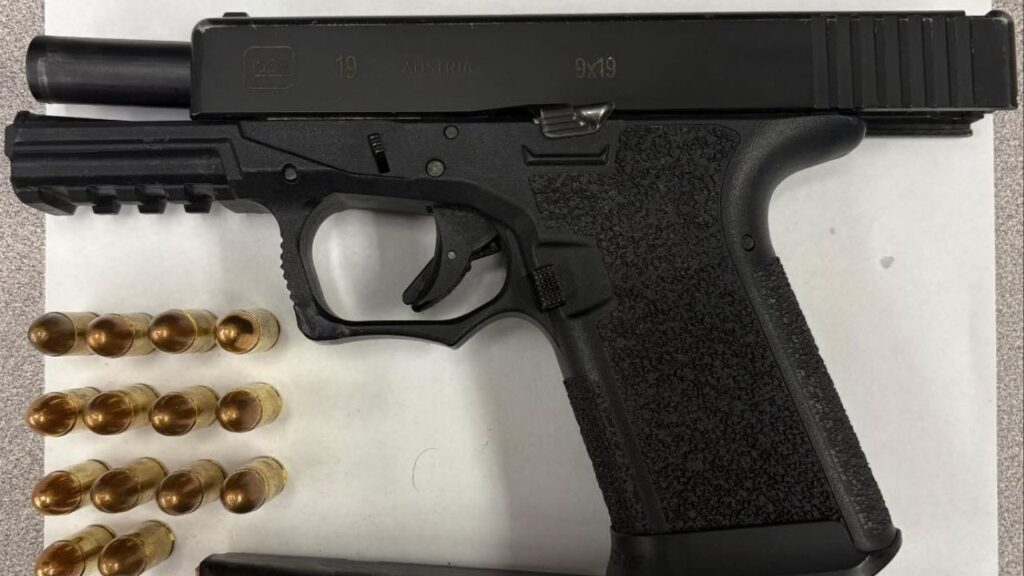Share
Fresno City Councilman Garry Bredefeld says schools should reopen based on the data.
Valley Children’s Hospital says schools should remain closed, based on the data.
In fact, “data” was uttered at least 34 times by the speakers at an hour-plus City Hall news conference organized Thursday morning by Bredefeld.
Bredefeld said the consequences of children staying home outweighed the dangers of schooling during a pandemic. He urged Gov. Gavin Newsom to allow local districts to decide and urged the districts to take appropriate safety measures.
“That is why the current policy by the governor closing every school, taking away local control from school boards, subjecting our children to failed online learning again in the fall semester, and removing choice from parents and teachers who want to return to school is destructive and harmful to our children,” Bredefeld said at City Hall.
Fresno Unified, Clovis Unified, and Central Unified previously announced plans to offer both in-school and online learning, but those became moot when Newsom ordered schools to close in counties that have high COVID-19 rates.
Joining Bredefeld at the news conference were former Fresno Mayor Alan Autry, Clovis Mayor Drew Bessinger, Fresno City Councilman Mike Karbassi, and Fresno Unified parents.
While Karbassi made it clear that he supported reopening the schools only when it’s safe and in consultation with public health experts, the others were in step with Bredefeld. They want local districts to decide when they can reopen.
Autry said that delaying children’s return to classrooms could have “consequences are so severe that our children could be paying for this for generations.”
Said Bessinger: “If this (closed campuses) goes another school year, they’ll be further behind. Do they get pushed through the system to pass, do they fail, do they get discouraged and drop out?”
CDC Report
Bredefeld repeatedly referred to a CDC report, released last week, about the importance of in-school learning.
“School closure disrupts the delivery of in-person instruction and critical services to children and families, which has negative individual and societal ramifications. The best available evidence from countries that have opened schools indicates that COVID-19 poses low risks to school-aged children, at least in areas with low community transmission, and suggests that children are unlikely to be major drivers of the spread of the virus,” the report said.
Fresno County has had a high rate of COVID-19. As of today, the state reports 14,312 positive cases for the county. County public health reports that 11% of those tested have been positive. The state average is 6% positive cases of those tested.
Children between 0-17 have made up 13% of the positive cases in the county. There have been no reported deaths in the 0-17 age bracket among the county’s 120 deaths.
Bredefeld also cited a study from the American Academy of Pediatrics about the importance of in-person learning vs. online instruction.
“What we’re talking about is, what is the risk for returning to school versus the costs of staying home? And the costs of staying home are dramatic,” Bredefeld said.
Manuel Bonilla, president of the Fresno Teachers Association union, would like in-school education as well, but when it is safe to do so.
“We, too, said that if schools could (reopen), if we could do so safely according to the CDC guidelines, that we would like to be able to,” Bonilla told GV Wire℠. “However, we obviously have to defer to the health experts and whatever state laws we have to adhere to.”
Valley Children’s CEO: Schools Not Safe to Reopen
Speaking Wednesday on “The Christopher Gabriel Program” on ESPN 940 radio, Valley Children’s CEO Todd Suntrapak said his hospital is taking pediatric COVID cases from other area hospitals.

“We do not have an environment in the Valley right now that we have case volume declining at a rate that means it’s safe for kids to be in school in person.” — Todd Suntrapak, president and CEO, Valley Children’s Healthcare
“We are, as a community at large, definitely seeing the spike in cases and our healthcare infrastructure is definitely pressed in meeting those needs,” Suntrapak said.
Suntrapak reported that 20% of child COVID-19 patients required a stay in the ICU.
Kids present in school is best, Suntrapak said, “when it is safe.” He cited CDC and AAP recommendations for masks and social distancing.
“Once the case growth is in decline, it is then safe to have the discussion about when to take children back to school in person,” Suntrapak said. “And until that time, virtual education, notwithstanding the challenges, is preferred and in fact, the safest. And that is very clearly our position. We do not have an environment in the Valley right now that we have case volume declining at a rate that means it’s safe for kids to be in school in person.”
In a statement to GVWire℠ after the Thursday news conference, Suntrapak pointed out that a July 10 statement from AAP, the American Federation of Teachers, the National Education Association, and the School Superintendents Association said, “For instance, schools in areas with high levels of COVID-19 community spread should not be compelled to reopen against the advice of local experts. A one-size-fits-all approach is not appropriate for return to school decisions.”
Said Suntrapak: “That is why the ‘high level of community spread’ in Fresno County demands that we act safely, responsibly, and with sound judgment and common sense.”
Fresno County’s Top Doc Weighs In
Dr. Rais Vohra, interim health officer for Fresno County, said that schools can reopen only after the community spread of coronavirus is controlled.
“We are sensitive to the community concern related to reopening schools. We are working aggressively on the many challenges related to controlling this epidemic in order to meet the state’s monitoring guidelines related to being able to allow school reopening,” Vohra said in a statement to GVWire℠ on Thursday afternoon.
“The Department of Public Health is also working closely and meeting multiple times per week with our county’s educational leadership, consulting with local and national pediatric and public health authorities, and engaging the many stakeholders involved with the complicated set of decisions involved in school reopening. Given the current scientific understanding of this illness, all the medical experts are in agreement that school reopening can only proceed when community spread is controlled.
“With that in mind, everyone needs to help control the spread. We urge every single member of our community to help us by slowing the spread of infection so Fresno County can move forward safely — that means stay home when you feel ill, avoid non-essential gatherings, wash your hands frequently, get tested, and use a mask when you are leaving your home to make essential trips for work or household needs.”

Bredefeld: Schools Can Be Safe
Bredefeld urged local school districts to engage in safe opening practices, such as spacing, outdoor learning, cleaning, and use of plexiglass.
“We send people to space. We developed the iPhone and revolutionized the world. We won two world wars. We can make our schools safe,” Bredefeld said. “Just because it’s hard doesn’t mean we give up. Teachers are essential. Let’s let them do what they do best.”
The councilman said he believed parents and teachers should have the choice of whether they return to the classroom, but options should be available.
“Those that don’t want to return to school or have medical problems shouldn’t be forced to. Just as those who want to return should not be forced to stay home. I support choice, parents choice, teachers choice,” Bredefeld said.
Bonilla, the Fresno Unified teacher’s union president, says things aren’t that simple.
If too many teachers choose not to return, Bonilla said, there may not be enough staff to effectively educate in person.
“It’s a lot more complicated than just saying let’s just get choice and go back,” Bonilla said.
There are other ways city leaders can help, Bonilla suggested.
“Unfortunately, what this has become is over-politicized in many respects. If the council member would like to get us back to a sense of normalcy, then I would urge him to use a leadership position and to advocate for community members to wear a mask,” Bonilla said.
Karbassi: Show Me the Plan
Karbassi would like to see schools reopen, but emphasized he needed to see a safety plan first.
“Many things have to happen before our schools reopen safely. But how that happens — whether we have remote learning and how fast we can resume in-person learning, which is very important to our kids — we need solid plans in place,” Karbassi said.
Karbassi said he has spoken with leaders from Central Unified, and liked their proposal to reopen.
“Their school board has worked really hard to ensure they can actually answer questions teachers and staff have, that parents have and they’re responsive to their constituents. And for that, they have absolutely earned my praise for their hard work and they’re on the right path moving forward,” Karbassi said.
Karbassi is still awaiting word from Fresno Unified.
“Where is their plan to reopen our schools safely for our teachers and our staffs? Because they are not expendable. They are people, too,” Karbassi said.
Karbassi encouraged school districts to ask the city for help and cited obtaining personal protective equipment as an example.
On Friday, Karbassi issued a video on social media that he said presented “a clear picture” of where he stands on school reopenings
Please watch this video to gain a clear picture of my thoughts on schools in Fresno. pic.twitter.com/h2yo9BXqai
— Mike Karbassi (@kmkarbassi) July 30, 2020
Bonilla wondered how far the city would go to help.
“Is he prepared to then utilize city funds to hire the additional staff needed in order to adhere to the physical distancing health guidelines once we are able to return?” Bonilla asked.
Children are getting very sick from COVID as well. Currently science in our area does not support opening schools. But I do want everyone to be prepared to get back as soon as it is actually safe to do so.
— Mike Karbassi (@kmkarbassi) July 30, 2020
Valley Children’s Hospital: Studies Show Kids Transmit Virus
During Bredefeld’s news conference, Zara Arboleda, the former local TV news anchor who is now communications director for Valley Children’s Hospital, tweeted data on her personal account showing that COVID-19 does pose a threat to children.
Of the more than 6,000 tests administered by the hospital, 8% came back positive for COVID-19. Furthermore, Arboleda shared CDC data showing an 18.6% transmission rate for children between the age of 10-19, based on a South Korean study.
Bredefeld emailed a rebuttal, at the request of GV Wire℠.
“I share their concerns. But as the CDC and the American Academy of Pediatrics (representing 67,000 pediatricians) just reported, they are also concerned about the lasting emotional, social, academic, and physical well being of children who are isolated at home for extended periods of time. They believe the risk/benefit analysis indicates it is better for children to return to school and both organizations have outlined numerous safety measures that would allow children to return safely. Parents should have the right and choice whether or not to send their child back to school with these safety measures in place,” Bredefeld said.
We DID release our data, Garry, when we held our own science-driven news conference last week. Here it is again. pic.twitter.com/QBun1Tz36c
— Zara Arboleda (@ZaraTV) July 30, 2020
Parents at News Conference: Where’s Our Voice?
Bredefeld invited three parents to speak to the media about their concerns.
“Families and students have been left with no voice, and to wonder, what will the academic year look like?” said Danielle Loucks, who has three children in Fresno Unified.
She asked if retailers like Home Depot, Walmart, and Target can open, why not schools?
“This mandate makes no sense. For those that are afraid, make the choices for your family that fit your need. For those that feel differently, a one size fits all mandate should not be implemented,” Loucks said.
Annika Fink said her children started to lose interest in education because of online education.
“My youngest one in the first grade at the time began to cry before every meeting. The online meetings are not as meaningful as in-person conversations,” Fink said, fighting back tears.

Distance Learning Plans of Local Districts
Fresno Unified’s plan has not been released yet, even though community members and even the Fresno Teachers Association are pressuring district officials to unveil it.
District spokeswoman Vanessa Ramirez said Thursday that negotiations with labor partners are still ongoing. Once they are complete, the district’s plan will be released, she said.
Both Clovis and Central unified school districts have prepared class schedules for elementary and secondary students that have been presented to the community.
In the Clovis model, which was presented last week at the community town hall meeting online, transitional kindergarten and kindergarten students would have two 90-minute instruction blocks. Students in grades 1 through 6 would have three instruction blocks of 60 and 90 minutes. Secondary students will have a one-hour zero period followed by seven 45-minute periods on Mondays, odd-numbered 90-minute periods on Tuesdays and Thursdays, and even-numbered 90-minute periods on Wednesdays and Fridays. Breaks and lunch will separate the instruction periods.
Central’s elementary students would start their week on Mondays with a one-hour class meeting, followed by offline independent study and counseling, then lunch. The afternoon would be devoted to schoolwide activities and more counseling opportunities. The Tuesday-Friday schedule would start with a class meeting, followed by an instruction block and small group instruction sessions. Teachers would hold office hours in the afternoons to work on interventions and with special education students and English language learners.
Middle and high schoolers will have similar schedules, with class meetings at the start of Monday, counseling at the beginning and end of the school day, and teacher office hours in the afternoons. Middle schoolers will attend periods 4-6 on Tuesdays and Thursdays and periods 1-3 on Wednesdays and Fridays, while high schoolers will attend even-numbered block classes on Tuesdays and Thursdays and odd-numbered blocks on Wednesdays and Fridays. Periods will be 60 minutes, while blocks will be 50 minutes, and instruction time will be separated by breaks and lunch.
(GV Wire education reporter Nancy Price contributed to this article.)
Categories

Modesto Woman Killed in Vehicle-Pedestrian Crash


















